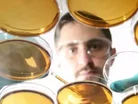Heart attack scars can be healed with stem cells

A small study, which was carried out by a team of American doctors, has revealed that there is a way to heal heart scars that form after a heart attack.
The researchers found using stem cells from a heart attack patient’s own heart was successful in healing damage and scarring which, until now, was thought to be permanent.
It was also discovered that the stem cells actually helped to regrow new heart muscles.
There are now hopes the discovery could lead to improved regenerative treatments for patients following a cardiac arrest.
To read the latest edition of Healthcare Global, click here
- Valentine’s Day campaign urges smokers to quit
- Broken bones could heal in days with new fracture putty
- Effectiveness of cancer treatments boosted by fasting
Usually after a heart attack scar tissue forms in place of the dead muscles, which restricts the heart’s ability to pump blood around the body.
Although after the stem cell therapy the cardiac scarring was halved in those patients involved in the study, the doctors do not believe the heart’s pumping capacity, or ejection fraction as it is otherwise known, was increased.
To carry out the investigation the doctors recruited 25 patients who had suffered a cardiac arrest during the previous month.
Over half of the study participants – 17 of them – received coronary artery stem cell infusions while the remaining eight underwent more traditional post-heart attack care.
After 12 months of treatment, the patients receiving stem cell therapy saw their scarring reduce from 24 percent to just 12.
There was no reduction in scarring noted in those patients receiving the standard cardiac care.
“The effects are substantial and surprisingly larger in humans than they were in animal tests,” commented Professor Eduardo Marban, the study leader and Director of the Cedars-Sinai Heart Institute in LA, where the research was carried out.
“This discovery challenges the conventional wisdom that, once established, scar is permanent and that, once lost, healthy heart muscle cannot be restored,” he said.
The results of the Phase 1 study are now appearing in well-known medical journal The Lancet.
The Healthcare Global magazine is now available on the iPad. Click here to download it.
- The Abbott stent that saves lives and inspired a new appProcurement & Supply Chain
- Novartis anti-inflammatory drug could prevent heart attacksMedical Devices & Pharma
- 30 second eye test could help prevent heart attacksTechnology & AI
- New screening test can identify heart attack riskTechnology & AI



